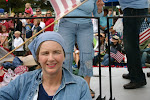DVD Review: Eyes Wide Open
That Eyes Wide Open is disappointingly absent from the Oscar nominees in the Best Foreign Film category may say more about certain lingering attitudes in the international film industry than about director Haim Tabakman’s accomplishment. More than simply a gay-themed film, Eyes is an outstanding example of contemporary Israeli (and Jewish) filmmaking.
Whether in theaters or on DVD, Eyes Wide Open is a must-see film, not only because it shows us the impact on a traditional Orthodox Jewish community when two men enter into a forbidden homosexual relationship. It’s because it shows us an Israel the news doesn’t. This isn’t the Israel of war and terrorism, nor the Israel of Biblical epics. It’s an Israel where contemporary everyday family life is bound by centuries of unshakable, unbreakable tradition. Along dusty stone streets families eat dinner, men go to Bible study with the rabbi, and those who feel a need for purification go to the healing waters in the desert.
It’s a worthy culture that’s endured for thousands of years but plainly has no place for homosexuality, especially not for a married man whom the local rabbi expects to allot justice to a sinner. While never disrespecting such a culture (or religion), or the gay community, this film demonstrates why a man cannot live as both an Orthodox Jew and a homosexual. The two worlds can simply, tragically never be made to co-exist.
If the film falls short, it’s that the ending feels forced, unsatisfactory, and leaves too many questions unanswered. Without giving too much away, however, such a conclusion does reflect what happens in real life when a similar situation allows no satisfactory resolution.


0 Comments:
Post a Comment
Subscribe to Post Comments [Atom]
<< Home